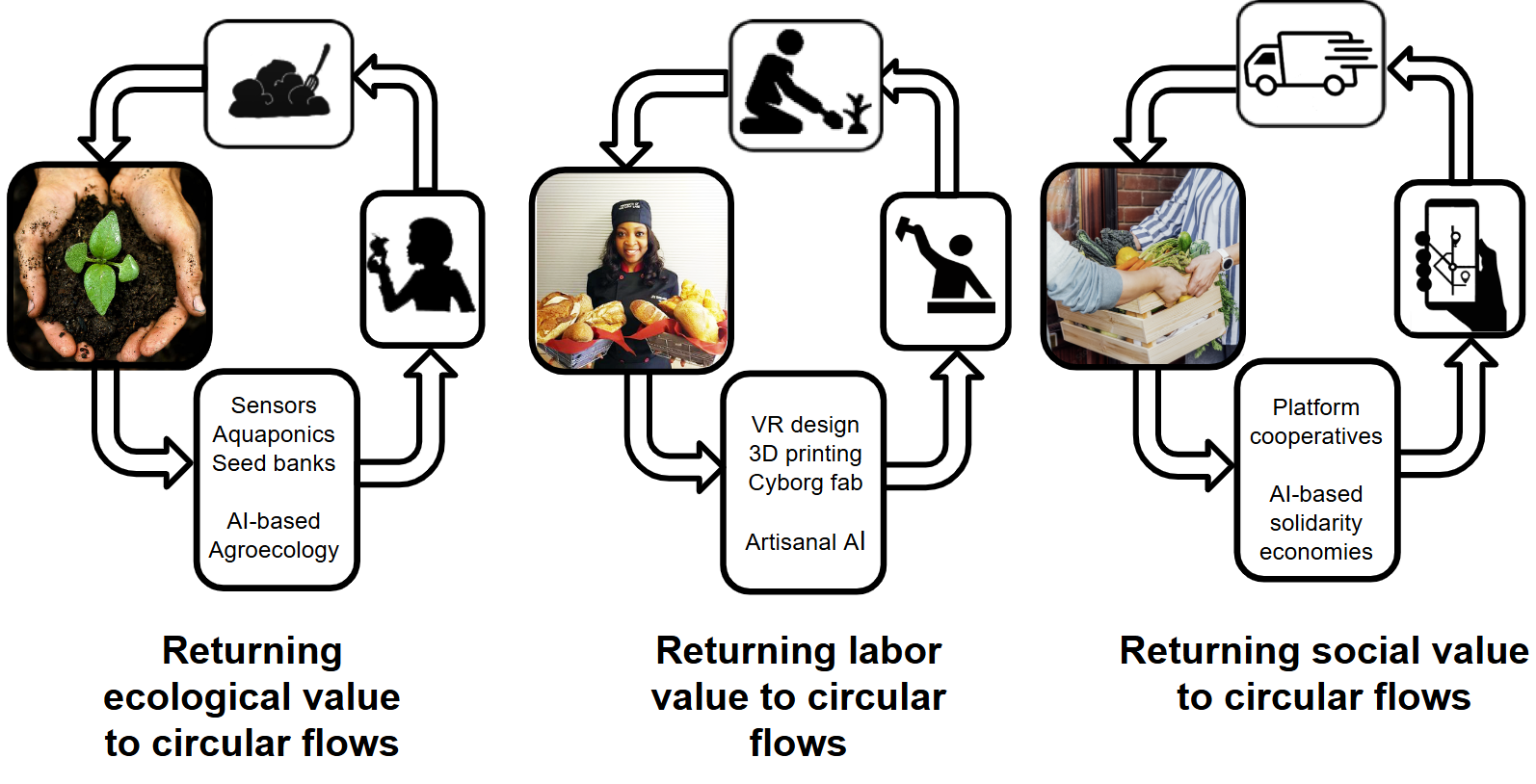Environmental damage, wealth inequality and social domination–the key issues of our time–can be understood as problems in value extraction. All three systems that create value–nature, labor, and society–are constantly regenerating themselves. Extraction means you take out value in ways that damage the ability to regenerate. That can be the extraction of ecological value (over-fishing lakes, over-farming soil); labor value (underpaid, dull work), or social value (communities colonized by land developers; social networks colonized by misinformation and hate mongers).
Top-down solutions often fail: Communism extracts value for the state, and capitalism extracts value for the corporation, such that both end up destroying communities and individuals. A better model can be found in the bottom-up approach of Indigenous traditions: rather than value extraction, they practiced value circulation. Similar systems for cycling value back to where it is generated–regenerative agriculture, worker-owned business, community-based platforms–can be applied to our contemporary societies. We refer to these as technologies for generative justice.

For all three categories (labor value, ecological value, and social value) we can define generative justice as follows:
The universal right to generate unalienated value and directly participate in its benefits; the rights of value generators to create their own conditions of production; and the rights of communities of value generation to nurture self-sustaining paths for its circulation.
I’m a big fan of Dr. Eglash’s work on mathematics in Africa, but this post seems to be full of postmodernist buzzwords. Shame. From what I can see, it seems like the projects listed here are well-intended, but if I could actually understand what this is saying, I’d be able to judge better.
Well, at least it’s critical of Marx, I suppose.
We need to be able to speak to postmodernists too! Every group has their own vocabulary, whether that is physicists or philosophers.